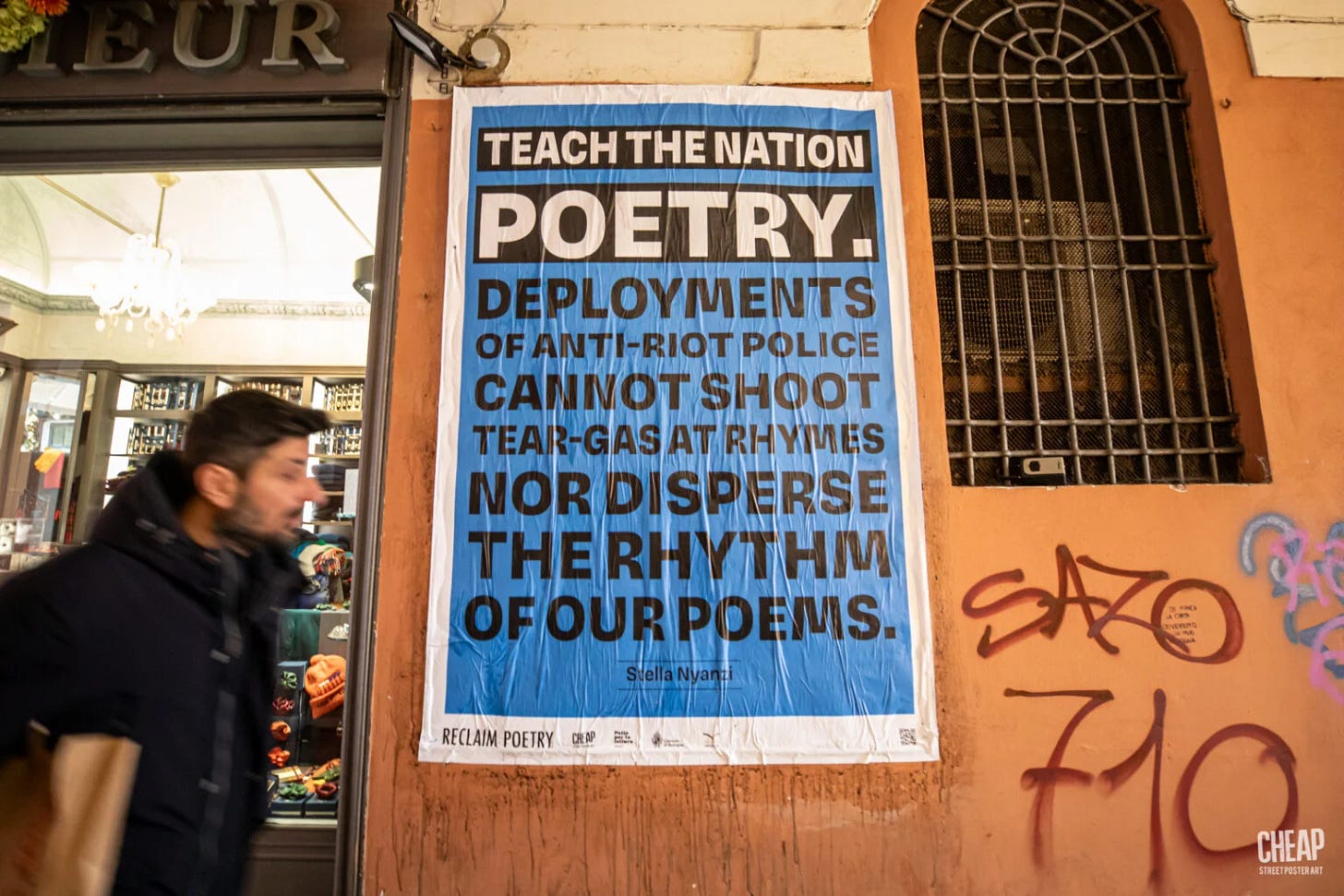Some alarming news this week concerning the battle against corruption. But first, a little background. Way back in May 2023 the European Commission published a Directive (2023/0135(COD) calling on each of the 27 EU Member States to treat “abuse of public office” — e.g. (mis)using elected positions to bolster private interests — as a criminal offence. One might have hoped Italy’s political class would take the matter seriously given the country is one of the most corrupt nations in the EU and ranks 41st in global transparency ratings. Instead, I’m afraid to report, the opposite is happening. Last Tuesday, the Senate’s Justice Committee put forward a Bill proposing to abolish the very notion of “abuse of office” from Italian law. The argument, if you’re interested, is threefold. First, according to proponents, investigations into abuses of office are “too expensive”; second, they “slow down” the justice system; third, they deter public actors from taking “tough decisions.” Convenient… right? Well, as I write this, all of Italy’s governing parties have voted in favour of the Bill, and Matteo Renzi’s centre-left Italia Viva party supported them from the opposition benches. For now, policy-makers are revising some of the wording of the legislation, but the consequences are already concerning. 3000 trials have been suspended so far, until further notice. Not only this: in new, adjacent measures, officials are adding another clause which would make it almost impossible for police to obtain a warrant to wiretap public officials suspected of wrongdoing. Check out this piece in Euractiv for more detailed info on the implications of these shocking, anti-democratic proposals which, at the time of writing, look to be heading into law.
When Georgia Meloni first came to power, she promised her government would work to heal deep divisions in society and unite Italians around a single national vision. Nice words, I suppose. But the reality, of course, is that no such project was ever on the cards. And nowhere is this clearer than in Rome’s relationship with the mezzogiorno. As 2024 gets going, citizens of Sicily, Calabria, Campania and Puglia are waking up to the fact that this government is doing even less than previous coalitions to support the South. It began last spring, when the administration cancelled the unemployment benefit, the reddito di cittadinanza (a service particularly in-demand south of Rome). Next, in the autumn, the government re-organized the PNRR Covid recovery funds to reduce payments to two cities that needed them most: Naples and Palermo. Now, this year, a new law called the Decreto Sud is coming into force which will – among other things – force Southern businesses to adhere more strictly to centralized administrative regulations. As of this month, all hotels, restaurants, tourist and cultural businesses are required to apply to the Minister of South, Raffaele Fitto, to obtain a new ‘permit to trade’ on top of the current existing bureaucracy. It’s unclear, frankly, what purpose the measure serves other than reinforcing the idea of South as a “subaltern” territory vis-a-vis a the North (where no such permit is required), but one thing’s for sure: this new additional layer of red tape is guaranteed to put off local entrepreneurs and international investors alike. With the population of the mezzogiorno already due to decline by 8 million in the next fifty years this proposal, sadly, looks set to accelerate the exodus.

Over the past few days Italian journalists have been obsessing over Men’s Fashion Week in Milan and Florence, where all the big designers have been showing off their FW catalogues for 2024/25. This year the media attention was on the big names: on Marco Mengoni’s biker-look at the Fendi show, and Bradley Cooper’s Louis Vuitton cameo among others. Workwear is still in, or so I’m told. And so is “granpa style”. Not to mention Balmoral Feeling (yuck). Overall, it’s difficult to disagree with The Financial Times’s rather damning verdict, that this year’s events were all about ‘making rich people look richer’ (a fact hammered home, especially, by image of Jeff Bezos sitting in front row seats). Having said that, there has been a good deal of artistic, creative flare on display amidst the usual vapid gossip column worthy stuff — as is always the case. This ‘best-of’ list in WallPaper magazine is the best round-up I’ve seen so far, and a good reminder that, sleaze aside, Italy-based fashion designers still know how to inject new kinds of presence and play into contemporary masculine aesthetics. The Dazed & Confused summary is also worth a peek if you’re into this kind of thing. So here’s the link.
Arts and culture: Bolo by night
The Bologna-based feminist group known as the ‘Cheap Collective’ launched a new street poetry initiative last month which is currently on display throughout the medieval city. ‘Reclaim Poetry’ is an effort to draw attention to what the artists call “the right to the poetic experience in everyday life.” To convey this message, the collective has erected giant posters around the porticoed streets of the centro storico which are embossed with quotes by authors such as Margaret Atwood, Cristina Torres Càceres, Diletta D’Angelo, Ida Vitale and Viola Lo Moro. On the one hand, this is a quasi ‘situationist’ intervention; an attempt to counteract the utilitarian advertising that so-dominates the contemporary urban environment. At the same time — ironically, almost — the intervention is itself a kind of “advert” for public services. Because, despite the grassroots aesthetics, ‘Reclaim Poetry’ is actually part of a local government funded project called the “Patto per la Lettura” which aims to promote reading, literary events and meetings in the city. While street poetry is nothing new (and in the end, the result is not as groundbreaking as, say, the activist-led Movimento per l'Emancipazione della Poesia in Florence) I do think it’s cool that the municipality of Bologna is valorising local libraries and bookshops in such a creative way, and in the name of the ‘common good.’ Other cities might well take note, and not only in Italy… More images are available over at ArtTribune.

Sticking with the Bologna love for just a moment: Italy’s first ever large-scale non-alcoholic drinks fair took place in the Red City this week and the media can’t seem to get enough of it. ‘No/Lo’, which took place on 15 January in the Zoo Community Bakery saw 27 producers of kombucha, fermented drinks, kefir, non-alcoholic ciders and even “beetroot fermented drinks” presenting their wares to a huge “sober curious” public. It’s easy to laugh at this stuff I know: the discourse around this scene is indeed quite cringe, the packaging pretentious and so on. Accusations of “ew.. gross” or “hipster nonsense” etc are more than understandable. Caveats aside, however, I do think this is an interesting development. The low and alcohol free drinks market in Italy has risen by 7% in the past year — as it has elsewhere — and the No/Lo organisers have clearly done a great job bringing a diverse group of national experimenters together. While I personally won’t be giving up the wine anytime soon, alcohol free alternatives have an increasingly large place in the world’s culinary and gastronomic landscape, and it’s good to see Italian artisans finally carving out a space for themselves. Follow La Sobreria on Instagram for more info.

Recipe: Flourless orange and almond cake
Russell Norman - the British author, restaurateur and chef - died over the Christmas period following a short, aggressive illness. It was sad news for lovers of his particular non-traditional approach to lightly-anglicised, very tasty, quasi-authentic Italian food. While I’ve found Norman’s writings hit and miss over the years, a few of his recipes, particularly in his book Polpo, feature regularly in my kitchen. This week, as a small tribute to the man, I thought I’d share one of his recipes for a pleasantly zesty fruit dessert. Because honestly, Norman’s ‘flourless orange and almond cake’ is one of the best dolci you can whip up during these post-festive and pre-carnival weeks. The dish itself is, broadly speaking, Venetian; and to me at least it perfectly evokes rainy canal side bars, and lazy espressos by the Rialto. The cake dough itself is very simple; dominated mainly by the nuts and egg. What makes the final thing stand out, however, is the topping: a rich, citrusy syrup that soaks neatly into the base, almost like a Greek portokalopita. Issy Croker has dilligently typed up a version of the recipe over at her blog, though do buy the book if you don’t own it already. It is really is a treasure-trove. Here’s the link.
About Me
My name is Jamie Mackay (@JacMackay) and I’m an author, editor and translator based in Florence. I’ve been writing about Italy for a decade for international media including The Guardian, The Economist, Frieze, and Art Review. I launched ‘The Week in Italy’ to share a more direct and regular overview of the debates and dilemmas, innovations and crises that sometimes pass under the radar of our overcrowded news feeds.
If you enjoyed this newsletter I hope you’ll consider becoming a supporter for EUR 5.00 per month (the price of a weekly catch-up over an espresso). Alternatively, if you’d like to send a one-off something, you can do so via PayPal using this link. No worries if you can’t chip-in or don’t feel like doing so, but please do consider forwarding this to a friend or two. It’s a big help.





